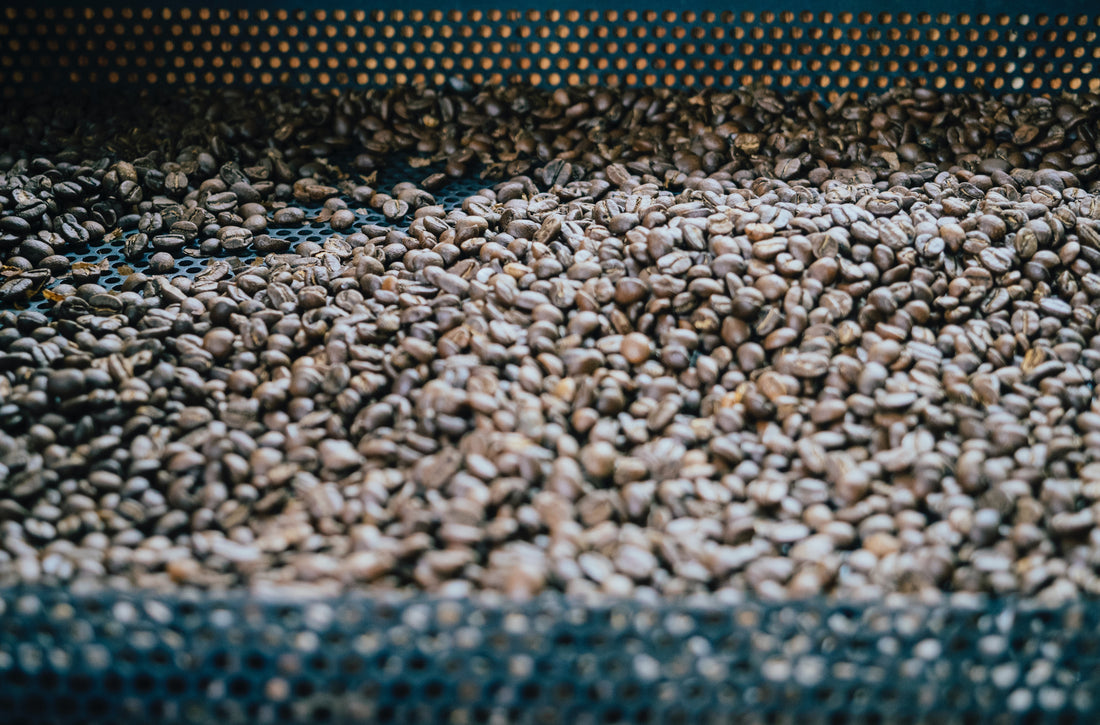
The Maillard reaction and coffee roasting
The Maillard reaction is a chemical reaction that occurs in foods when they are cooked at high temperatures. It is responsible for the browning and flavor development that occurs in many types of food, including coffee. In coffee roasting, the Maillard reaction plays a vital role in creating the complex flavors and aromas prized by coffee lovers around the world.
The Maillard reaction occurs between amino acids and reducing sugars in coffee beans. During the roasting of coffee, the high heat causes amino acids and sugars to react, creating a wide range of compounds that contribute to the flavor and aroma of the coffee. These compounds include pyrazines, furans, and pyrroles, which are responsible for the roasty, nutty, and caramel flavors often associated with coffee.
The Maillard reaction also produces melanoidins, which are complex, high molecular weight compounds that give coffee its distinctive color and body. Melanoidins are formed when amino acids and sugars react to create a series of intermediate compounds, which then react with each other to form melanoidins. These compounds are responsible for the dark brown color of coffee beans and the thick, syrupy texture of coffee.
One of the challenges in roasting coffee is achieving a balance between the Maillard reaction and the other chemical reactions that occur during roasting, such as caramelization and degradation. Caramelization occurs when sugar molecules are broken down and reformed into new compounds, creating sweet and fruity flavors. Spoilage occurs when heat causes coffee beans to break down, resulting in loss of flavor and aroma.
Roasters must carefully control the temperature and duration of the roasting process to achieve the desired balance of these reactions. Too much of a Maillard reaction can result in burnt or bitter flavors, while too little can result in a flat or underdeveloped taste. Roasters should also consider the characteristics of the beans themselves, such as their size, density and moisture content, as these can affect how the beans react during roasting.
In addition to the Maillard reaction, roasting coffee also involves other chemical reactions, such as the breakdown of chlorogenic acids and the release of volatile compounds such as carbon dioxide and water vapor. These reactions contribute to the overall flavor and aroma of the coffee and must be carefully controlled to achieve the desired results.
In conclusion, the Maillard reaction is an essential part of the coffee roasting process, responsible for the complex flavors and aromas that make coffee such a popular beverage around the world. By carefully controlling the temperature and duration of the roasting process, roasters can achieve a balance between the Maillard reaction and other chemical reactions, resulting in coffee with a rich, full-bodied flavor and aroma. Whether you prefer a light, medium or dark roast, the Maillard reaction is an essential part of what makes coffee so delicious.
The Maillard reaction occurs between amino acids and reducing sugars in coffee beans. During the roasting of coffee, the high heat causes amino acids and sugars to react, creating a wide range of compounds that contribute to the flavor and aroma of the coffee. These compounds include pyrazines, furans, and pyrroles, which are responsible for the roasty, nutty, and caramel flavors often associated with coffee.
The Maillard reaction also produces melanoidins, which are complex, high molecular weight compounds that give coffee its distinctive color and body. Melanoidins are formed when amino acids and sugars react to create a series of intermediate compounds, which then react with each other to form melanoidins. These compounds are responsible for the dark brown color of coffee beans and the thick, syrupy texture of coffee.
One of the challenges in roasting coffee is achieving a balance between the Maillard reaction and the other chemical reactions that occur during roasting, such as caramelization and degradation. Caramelization occurs when sugar molecules are broken down and reformed into new compounds, creating sweet and fruity flavors. Spoilage occurs when heat causes coffee beans to break down, resulting in loss of flavor and aroma.
Roasters must carefully control the temperature and duration of the roasting process to achieve the desired balance of these reactions. Too much of a Maillard reaction can result in burnt or bitter flavors, while too little can result in a flat or underdeveloped taste. Roasters should also consider the characteristics of the beans themselves, such as their size, density and moisture content, as these can affect how the beans react during roasting.
In addition to the Maillard reaction, roasting coffee also involves other chemical reactions, such as the breakdown of chlorogenic acids and the release of volatile compounds such as carbon dioxide and water vapor. These reactions contribute to the overall flavor and aroma of the coffee and must be carefully controlled to achieve the desired results.
In conclusion, the Maillard reaction is an essential part of the coffee roasting process, responsible for the complex flavors and aromas that make coffee such a popular beverage around the world. By carefully controlling the temperature and duration of the roasting process, roasters can achieve a balance between the Maillard reaction and other chemical reactions, resulting in coffee with a rich, full-bodied flavor and aroma. Whether you prefer a light, medium or dark roast, the Maillard reaction is an essential part of what makes coffee so delicious.
